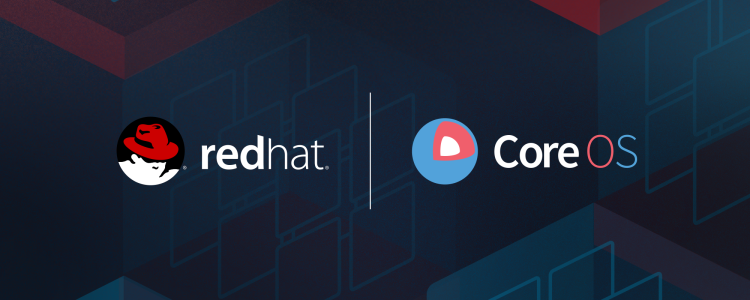Red Hat announced today that it has reached an agreement to acquire CoreOS, one of the biggest independent players in the Kubernetes ecosystem. It’s a move by the enterprise tech company to bring in more expertise as it builds software that integrates with the popular open source project.
The deal is worth $250 million and is expected to close next month. Red Hat said in a press release that it will integrate CoreOS’ offerings into its own products. In addition, the company said it will honor all commitments around support of CoreOS products — both during and after the acquisition — and will continue to support the open source communities that exist around the startup’s offerings.
CoreOS was one of the first companies to bet big on containerized software, which uses an execution environment that’s lighter-weight and more isolated than a traditional virtual machine. When Google released its Kubernetes container orchestration project in 2014, CoreOS made an early bet on it, at a time when competition was still hot in the container orchestration space.
Kubernetes doesn’t seem like such a risky bet anymore. Microsoft, Google, and Amazon have all launched managed services for their cloud platform that are built on top of the upstream open source project, and they’re just the tip of the iceberg, with plenty of other providers (including Red Hat) also in the market.
June 5th: The AI Audit in NYC
Join us next week in NYC to engage with top executive leaders, delving into strategies for auditing AI models to ensure fairness, optimal performance, and ethical compliance across diverse organizations. Secure your attendance for this exclusive invite-only event.
CoreOS’ product portfolio includes Tectonic, a distribution of Kubernetes that’s designed to automatically update and manage itself, and Quay, a piece of software that acts as a registry for containerized applications, making it easier to manage them. This deal could boost enterprise sales of CoreOS products, since the company is often trying to reach the same customers who would be interested in deploying some amount of Red Hat’s enterprise Linux stack.
While Red Hat plans to integrate CoreOS products into its own offerings, the company hasn’t offered much in the way of plans for how that will happen. That’s partially by design, according to Ashesh Badani, VP of Red Hat’s OpenShift container unit.
“With regard to how we integrate the roadmaps, the temptation is to rush into something, and I can tell you there has been no shortage of ideas from either side with regard to what to do,” Badani said in an interview with VentureBeat. “But we want to take a little bit of time to do this right, getting the right people from both sides together and going a little bit deeper into planning, and also taking some feedback from our shared and joint customers, to make the right decisions.”
One of the company’s key value propositions is that its software can provide customers with a consistent, cloud-agnostic execution environment — meaning it can help save enterprises from being locked into a particular provider.
That vision doesn’t change with this acquisition, CoreOS cofounder and CEO Alex Polvi said.
“I think there has never been a time in the history of computing that has needed open source more than right now,” he said.
Polvi didn’t offer much in the way of details around why he felt it was the right time for CoreOS to sell itself, but said that he saw the move as one part of the startup’s ongoing evolution.
“This change with Red Hat is just another step along the way,” Polvi said. “As a startup, you have the chance to go in a lot of different directions. For us, this is the one that made the most sense at our current inflection point.”

